"Feeding insects to pets is not new. Owners of small reptiles and some birds feed insects to these pets. It only requires a change in attitude about eating insects that keeps them from becoming part of the diet of cats and dogs," stated Dr Ken Tudor on the online portal PetMed.com in early 2014.
Over 1 900 species of insects are now considered edible. Insects such as crickets or grasshoppers are protein-rich and healthy. More than two billion people now regularly consume insects, with the Food and Agriculture Organisation claiming that there are 140 countries in which beetles, caterpillars and grasshoppers end up in the cooking pot. Insects offer an alternative to meat and a variation in diet. They have not made it onto the menu in Europe so far, although there are restaurants in the Netherlands that specialise in insects, nor are they yet approved as food by the European Union.
The Food and Agriculture Organisation believes that this will soon change and that insects will become a key constituent of our diet. This would be beneficial to the environment: according to one study, eight kilos of food are required to produce one kilo of beef in the rearing process up to slaughter. For a kilo of insects, roughly only two kilos of food are needed. In addition, insects reproduce quickly and need little energy for breeding.
Proteine Resources introduces scalable beef analog
Proteine Resources, a creator of a protein technology from Poland, has developed the world's first scalable beef analog with a …
Healthy and sustainable
It was only a question of time before the pet food industry would embrace this topic. Following the announcement by Dutch manufacturer Jonker Petfood of such products in 2014, the German manufacturer Green Petfood brought out two dry foods, InsectDog hypoallergen and InsectDog sensitive, in autumn 2016. "Dog food containing insect protein is at least as good as food containing conventional meat," it says on the company's website. Insects are also an ideal basis for hypoallergenic food, as they constitute a source of protein rarely used hitherto in dog food.
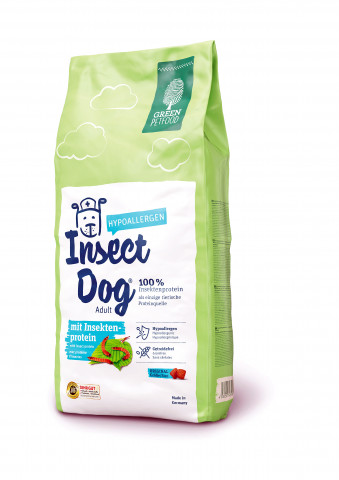
Green Petfood has been marketing dog food with insect protein since autumn 2016.


 Menü
Menü

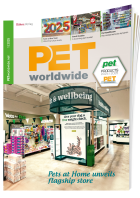



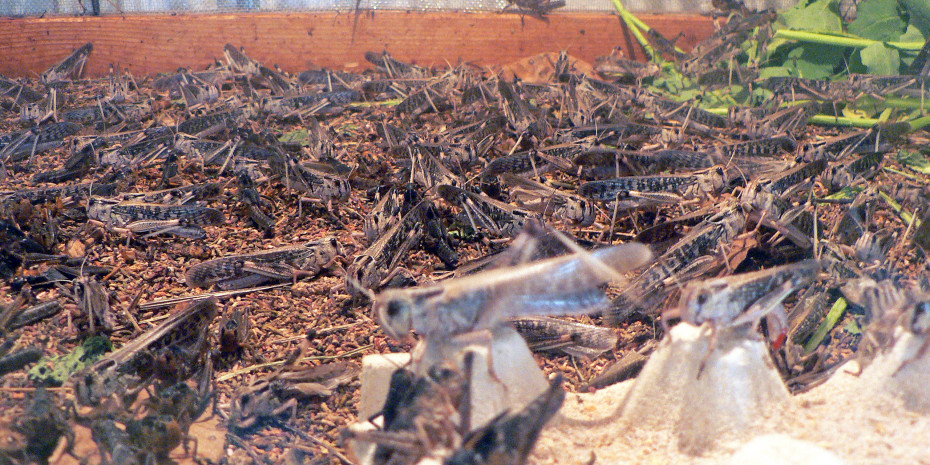


 1/2018
1/2018

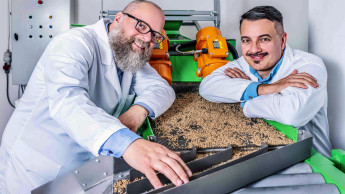
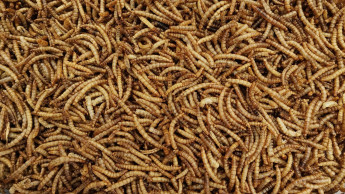


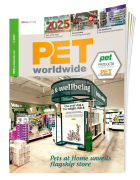







 Newsletter
Newsletter